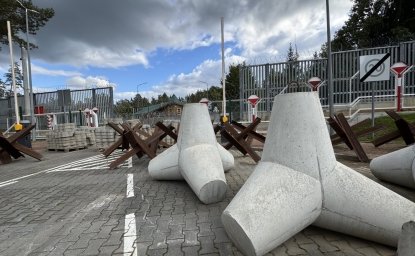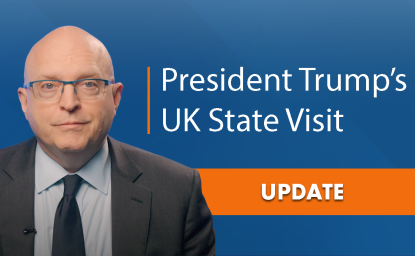Scholar Bolsters U.S. Studies in Egypt
Manar ElShorbagy, a Wilson Center public policy scholar from Eqypt, teaches U.S. studies in Cairo and hopes to inspire her students to pay more attention to U.S. domestic politics.
Manar ElShorbagy, a Wilson Center public policy scholar from Eqypt, teaches U.S. studies in Cairo and hopes to inspire her students to pay more attention to U.S. domestic politics.
Public Policy Scholar Manar ElShorbagy has a keen interest in the U.S. Congress, an unusual academic pursuit for someone from Egypt. Her dissertation on how U.S. congressional policies have impacted health care and crime was the first ever written by an Egyptian on U.S. domestic politics.
"To understand the United States, we have to look at it from within," said ElShorbagy. "Domestic politics matter. Institutions matter."
The Arab world, she said, lacks scholarship on U.S. politics and how American institutions operate, yet such knowledge could foster awareness and exchange.
Egyptian universities recently have begun to expand access to American studies. Last year, Cairo University established a U.S. studies program. This year, ElShorbagy became the first director of the new American Studies Center at the American University in Cairo, where she teaches U.S. studies courses. This Center is multi-disciplinary, designed to explore American politics, economics, history, and culture. As director, ElShorbagy aims to dispel some of the differences that undermine U.S.-Arab relations.
"U.S.-Arab relations are plagued by mutual incomprehension, which worsened after September 11," said ElShorbagy. "We [in the Arab world] need to understand the United States through systematic, objective study, which is more important now than ever before."
Since September 11, ElShorbagy has noticed a growing radicalization among Egyptian students against the United States on account of U.S. politics in the region. When visiting America, she senses a similar radicalization of young Americans against the Arab world.
The existence of such animosity and misperceptions on both sides adds urgency to her work.
One issue creating skepticism in the Arab world is the U.S. commitment to democratizing the Middle East.
"The idea of democratizing the Arab world, as noble as it may sound, can do more harm than good," ElShorbagy said, given that many tough questions remain unanswered, leaving Arabs skeptical of U.S. intentions toward democracy.
"For example, would the United States respect the will of the people even if it meant electing Islamists? Would the United States recognize the differences among them, and be willing to assist all civil societies across the board, or would it be selective according to their political persuasion?" Such selectivity, she said, could delay or distort political reform.
ElShorbagy said that many Arabs hold negative views toward the legislative branch of the U.S. government. Arabs wonder why their views are not channeled to U.S. lawmakers and why U.S. policies are not responsive to Arab concerns.
Thus, her project at the Wilson Center will focus on answering some of these questions by studying how think tanks influence U.S. congressional policy in the Middle East. She wants to explore how ideas travel to the government and eventually get incorporated into U.S. policy.
In dealing with the Middle East, ElShorbagy would advise U.S. policymakers to "incorporate the complexities of the Middle East into U.S. policies and remember that no one solution fits all."


